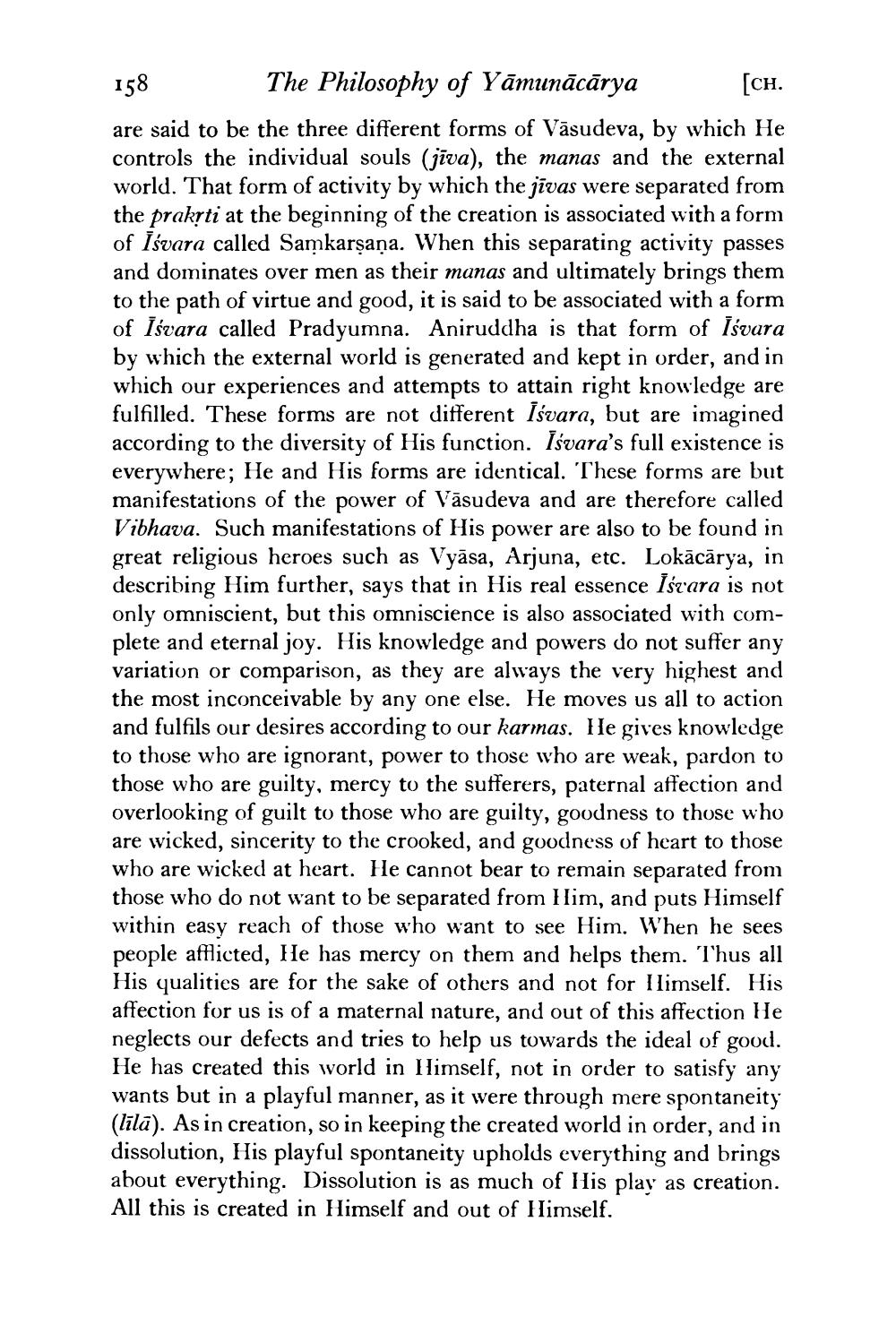________________
158 The Philosophy of Yāmunācārya [CH. are said to be the three different forms of Vāsudeva, by which He controls the individual souls (jīva), the manas and the external world. That form of activity by which the jīvas were separated from the prakrti at the beginning of the creation is associated with a form of īśvara called Samkarşaņa. When this separating activity passes and dominates over men as their manas and ultimately brings them to the path of virtue and good, it is said to be associated with a form of īśvara called Pradyumna. Aniruddha is that form of īśvara by which the external world is generated and kept in order, and in which our experiences and attempts to attain right knowledge are fulfilled. These forms are not different īśvara, but are imagined according to the diversity of His function. Iśvara's full existence is everywhere; He and His forms are identical. These forms are but manifestations of the power of Vāsudeva and are therefore called Vibhava. Such manifestations of His power are also to be found in great religious heroes such as Vyāsa, Arjuna, etc. Lokācārya, in describing Him further, says that in His real essence īśvara is not only omniscient, but this omniscience is also associated with complete and eternal joy. His knowledge and powers do not suffer any variation or comparison, as they are always the very highest and the most inconceivable by any one else. He moves us all to action and fulfils our desires according to our karmas. He gives knowledge to those who are ignorant, power to those who are weak, pardon to those who are guilty, mercy to the sufferers, paternal affection and overlooking of guilt to those who are guilty, goodness to those who are wicked, sincerity to the crooked, and goodness of heart to those who are wicked at heart. He cannot bear to remain separated from those who do not want to be separated from Him, and puts Himself within easy reach of those who want to see Him. When he sees people afflicted, He has mercy on them and helps them. Thus all His qualities are for the sake of others and not for Ilimself. His affection for us is of a maternal nature, and out of this affection He neglects our defects and tries to help us towards the ideal of good. He has created this world in Himself, not in order to satisfy any wants but in a playful manner, as it were through mere spontaneity (līlā). As in creation, so in keeping the created world in order, and in dissolution, His playful spontaneity upholds everything and brings about everything. Dissolution is as much of His play as creation. All this is created in Himself and out of Himself.




